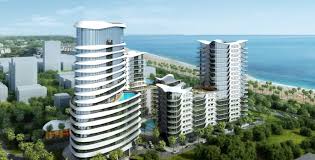Real Estate Market Trends in Nigeria: What to Expect in 2025
Introduction
Real Estate Market Trends in Nigeria are changing quickly as we move towards 2025. Find out about new trends, investment opportunities, and what to expect, so you can make smart decisions in this growing market.
The real estate market in Nigeria is one of the most dynamic and promising sectors in Africa. As the country continues to experience rapid urbanization and population growth, demand for real estate, particularly in key cities, remains high. With 2025 on the horizon, stakeholders, investors, and homebuyers are curious about what the future holds for Nigeria’s real estate market. This article delves into the current state of the market, key trends, investment opportunities, and predictions for 2025.
1. Current State of Nigeria’s Real Estate Market
The real estate market in Nigeria has shown resilience despite economic challenges. There is a steady demand for both residential and commercial properties.
Residential vs. Commercial Real Estate: The residential market remains robust, driven by a growing population and increasing urban migration. In contrast, the commercial segment has seen mixed results, with demand for office spaces slightly impacted by changes in work patterns, including remote work.
Key Factors Influencing the Market: Inflation, high construction costs, and fluctuating interest rates have been pivotal in shaping market dynamics. These factors have influenced property prices, making affordability a key concern for many prospective buyers.
2. Economic Outlook and Its Impact on Real Estate in 2025
The Nigerian economy plays a crucial role in shaping the real estate market.
Inflation and Interest Rates: As of 2024, Nigeria has faced high inflation rates, affecting the cost of building materials and property prices. By 2025, if inflation is controlled, there could be more stability in the market, benefiting both investors and buyers.
Government Policies and Real Estate Regulations: The government’s ongoing reforms in land administration and real estate regulations are expected to create a more transparent environment for property transactions. Policies that focus on affordable housing development could also boost the market.
3. Urbanization and Population Growth
Nigeria’s rapid urbanization is one of the key drivers of real estate demand.
Influence of Urban Migration on Housing Demand: Cities like Lagos, Abuja, and Port Harcourt continue to attract people from rural areas, increasing the need for housing. This trend is expected to continue in 2025, with new residential projects coming up to meet the growing demand.
Key Cities Experiencing Real Estate Growth: Lagos remains the most vibrant real estate market, followed by Abuja. However, cities like Ibadan and Enugu are emerging as new hotspots due to their expanding infrastructure and relatively lower property prices.
4. Investment Opportunities in 2025
Investors are constantly looking for profitable ventures in Nigeria’s real estate market.
Affordable Housing Projects: As demand for affordable homes grows, more developers are focusing on this segment. Government initiatives aimed at providing low-cost housing are expected to continue into 2025, making this a promising area for investment.
Luxury and High-end Real Estate: Despite the focus on affordability, there remains a niche market for luxury properties in areas like Ikoyi and Victoria Island in Lagos. These properties appeal to high-net-worth individuals and diaspora Nigerians.
Real Estate Investment Trusts (REITs) in Nigeria: REITs are becoming a popular way for investors to gain exposure to real estate without directly owning properties. By 2025, the REITs market in Nigeria is expected to become more mature, offering better returns for investors.
5. Technological Advancements in Real Estate
Technology is reshaping the way real estate transactions are conducted in Nigeria.
Digital Platforms for Property Transactions: Platforms like PropertyPro and Nigerian Property Centre have made it easier for buyers and sellers to connect. By 2025, the use of digital platforms is expected to increase, offering more transparency and efficiency in property deals.
Proptech and Its Role in 2025: Proptech, which includes innovations like virtual property tours, digital documentation, and smart home technology, is expected to gain more traction. These advancements make the real estate market more attractive to tech-savvy buyers.
6. Sustainable Development and Green Buildings
With increasing awareness of climate change, there is a growing focus on sustainable real estate development in Nigeria.
Growing Demand for Eco-friendly Buildings: Buyers and tenants are now more aware of the benefits of energy-efficient buildings. This trend is expected to continue in 2025, with more developers incorporating green building practices in their projects.
Government Initiatives Supporting Sustainability: The Nigerian government has introduced policies to encourage green building practices, such as the adoption of solar energy. These initiatives could help make eco-friendly buildings more accessible and affordable.
7. Challenges Facing the Real Estate Market
While there are many opportunities, the Nigerian real estate market faces several challenges.
Land Acquisition and Documentation Issues: Acquiring land in Nigeria can be complicated due to unclear land titles and bureaucratic processes. This remains a major challenge that needs to be addressed for the market to thrive in 2025.
High Construction Costs: The cost of building materials has surged due to inflation and supply chain disruptions. This has made it difficult for developers to maintain affordable pricing for new projects.
Limited Access to Mortgage Financing: Despite efforts to improve mortgage financing, many Nigerians still find it hard to secure loans due to high interest rates and stringent requirements. Improving access to affordable mortgages could boost the housing market.
8. Emerging Real Estate Hotspots in Nigeria
Certain cities are poised for significant real estate growth in 2025.
Lagos and Abuja’s Expanding Real Estate Market: Lagos continues to be the most sought-after location for real estate investments, with areas like Lekki and Eko Atlantic offering lucrative opportunities. Abuja, being the political capital, also attracts significant investment.
Up-and-Coming Cities like Ibadan and Enugu: As property prices in Lagos and Abuja soar, investors are turning their attention to secondary cities like Ibadan, Enugu, and Uyo. These cities offer lower entry points and the potential for high returns.
9. Impact of Infrastructure Development on Real Estate
Infrastructure projects directly influence property values and development.
Major Road and Railway Projects: Projects like the Lagos-Ibadan Expressway and new railway lines are expected to boost real estate development along their corridors, making areas around these projects more attractive for investment.
How Infrastructure Enhances Property Values: Improved infrastructure reduces commute times and increases the desirability of certain neighborhoods, directly impacting property prices.
Conclusion
Nigeria’s real estate market holds immense potential as we approach 2025. With the right economic policies, improved access to financing, and continuous urbanization, the sector is set to grow. While challenges such as land acquisition issues and high construction costs persist, opportunities in affordable housing, digital innovation, and sustainable development offer a promising future. Investors and stakeholders should stay informed about market trends to capitalize on the growth expected in the coming years.





